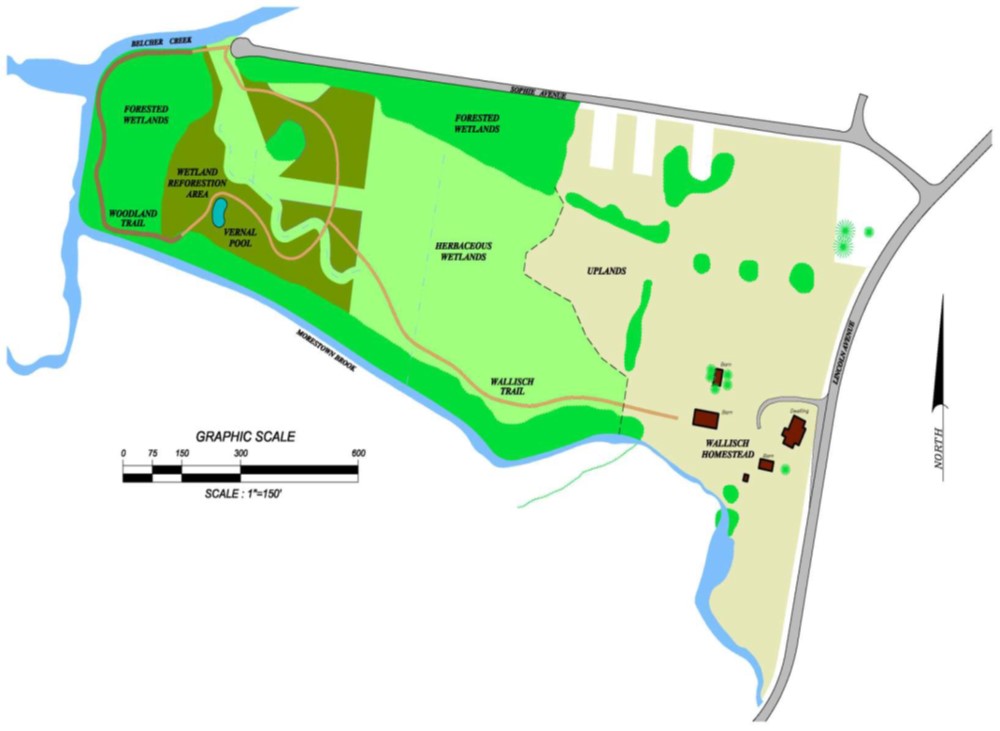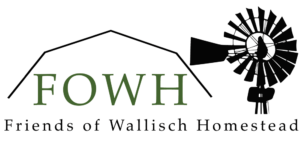Visit Wallisch Homestead
Grounds and Trail
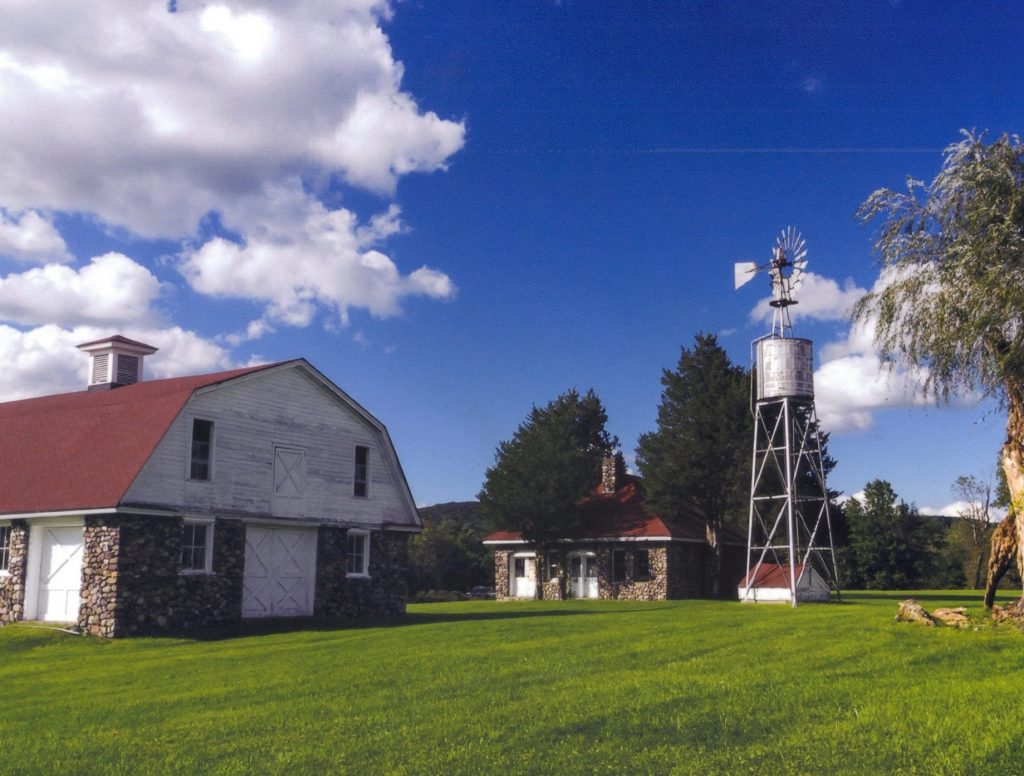

However you plan to enjoy Wallisch Homestead, here’s a few things to keep in mind:
- Please park only along the street or in the driveway.
- ATV use is strictly prohibited and security cameras are on site.
- Please carry out all trash.
- Dogs are welcome, but must be leashed. Please clean up after your dog.
- A porta-potty is available for your convenience; please keep it clean.
Get directions with the Google Maps option below.
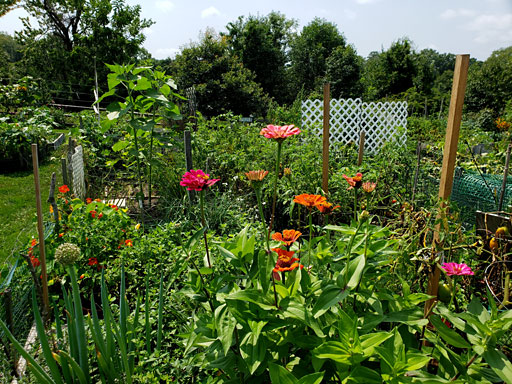
Descriptive Brochure
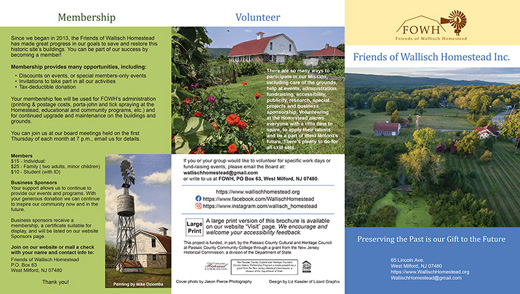
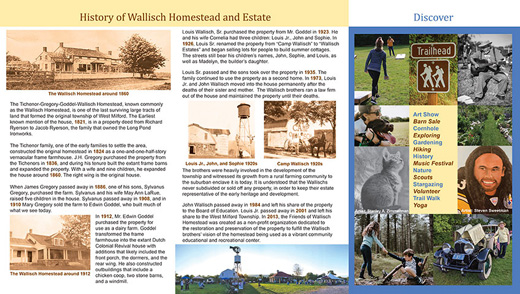
Tour Brochure
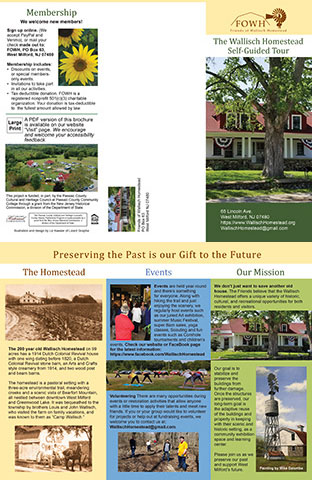
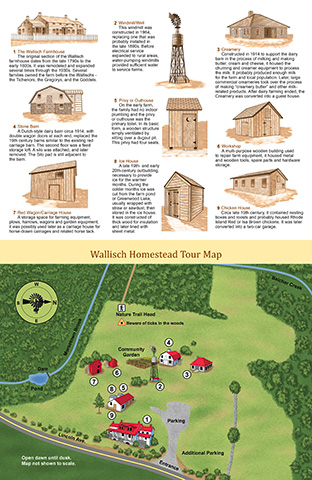
Tour Map
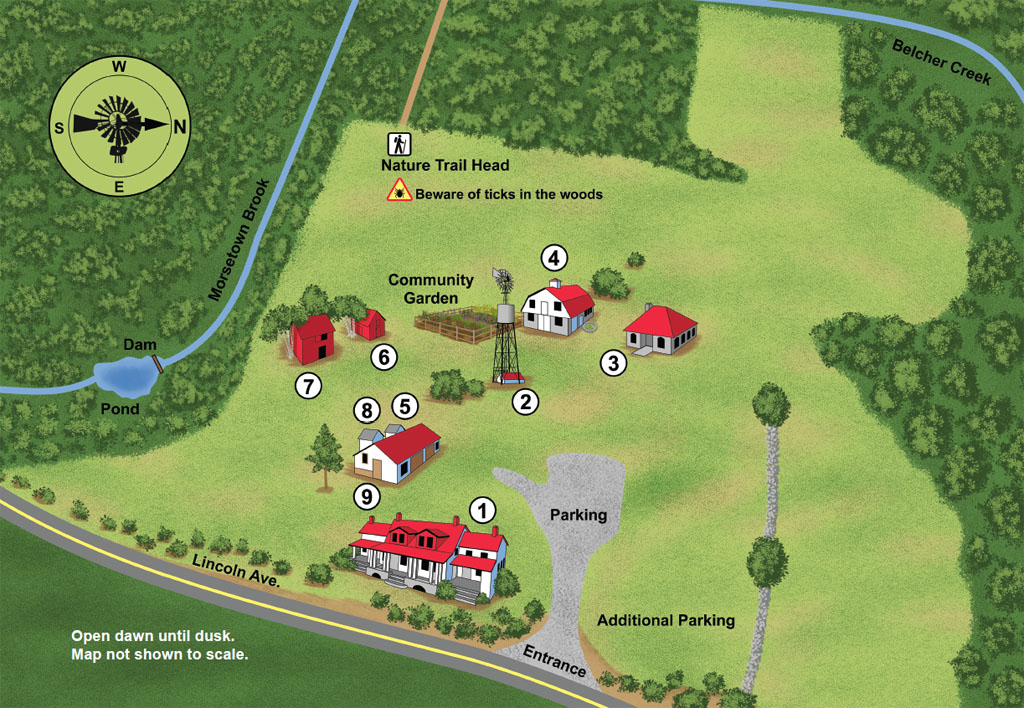
Map layout for illustrative purposes only and not drawn to scale.
1. The Wallisch Farmhouse
The original section of the Wallisch farmhouse dates from the late 1790’s-early 1800’s and was remodeled and expanded several times thru the 1930’s. Several families owned the farm before the Wallischs’, the Tichenors, Gregorys and the Goodells.
2. Windmill/Well
This windmill was constructed in 1964 replacing one that was probably installed in the late 1890’s. Before electrical service expanded to rural areas, water pumping windmills provided sufficient water to service farms.
3. Creamery
Constructed in 1914 to support the dairy barn in the process of milking and making butter, cream and cheese. It housed the churning and creamer equipment to process the milk. Probably produced enough milk for the farm and local population. Later large commercial creameries took over the process of making “creamery butter” and other milk related products. After dairy farming ended the Creamery was converted into a guest house.
4. Stone Barn
Dutch Style Dairy barn circa 1914, with double wagon doors at each end replaced 19th century barns similar to the existing red carriage barn. The second floor was a feed storage loft. A silo was attached, later removed. The Silo pad is still adjacent to the barn.
5. Privy or Outhouse
On the early farm the family had no indoor plumbing and the privy or outhouse was the primary toilet. In its basic form, a wood structure simply ventilated, sitting over a dug out pit. This privy had 4 seats.
6. Workshop
A wooden building to repair farm equipment, metal and wood tools, spare parts and hardware storage. Functioned as a multi-purpose workshop.
7. Red Timber Frame Barn/Carriage House
Storage space for farming equipment, plows, harrows, wagons and garden equipment. Later possibly used as a carriage house for horse-drawn carriages and related horse tack.
8. Ice House
A late 19th century and later, necessary out building to provide ice for the warmer months. During the colder months ice was cut from the farm pond or Greenwood Lake, usually wrapped with straw or sawdust and stored in the ice house. Constructed of thick wood walls for insulation, later lined with sheet metal.
9. Chicken House
Circa late 19th century, it contained nesting boxes and roosts inside. Probably housed Rhode Island Red or Isa Brown chickens. Later it was converted to a two car garage.
Hiking Trail
